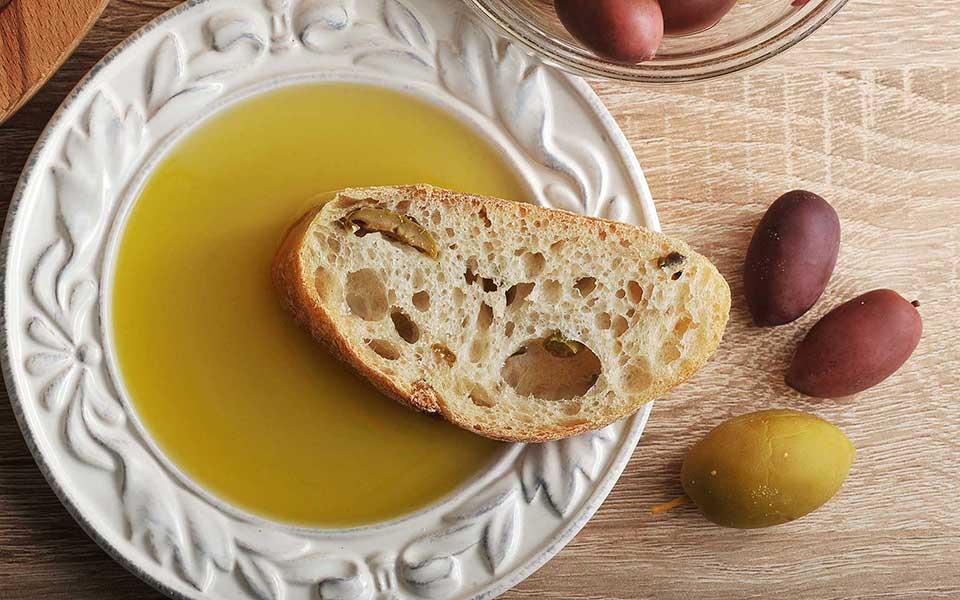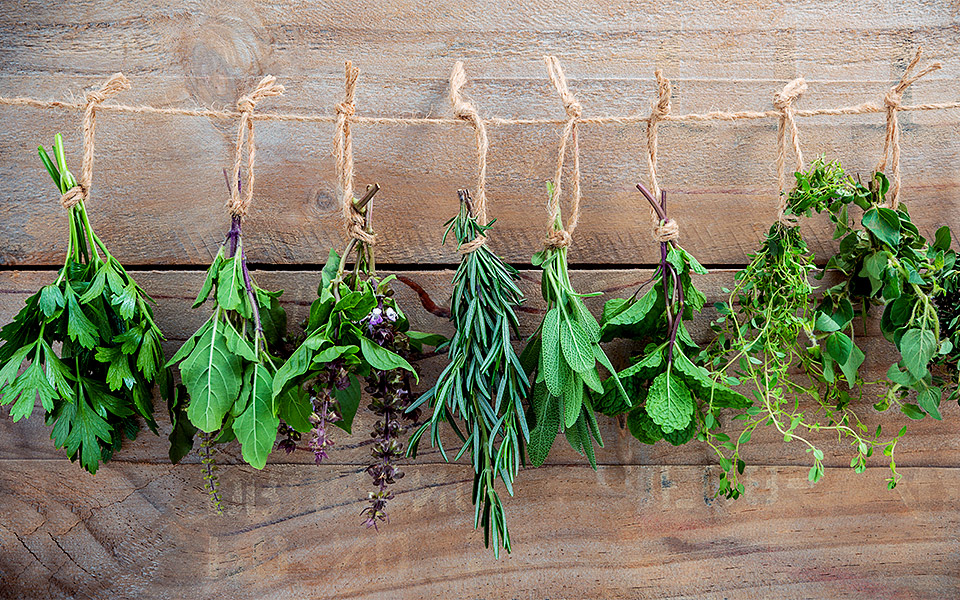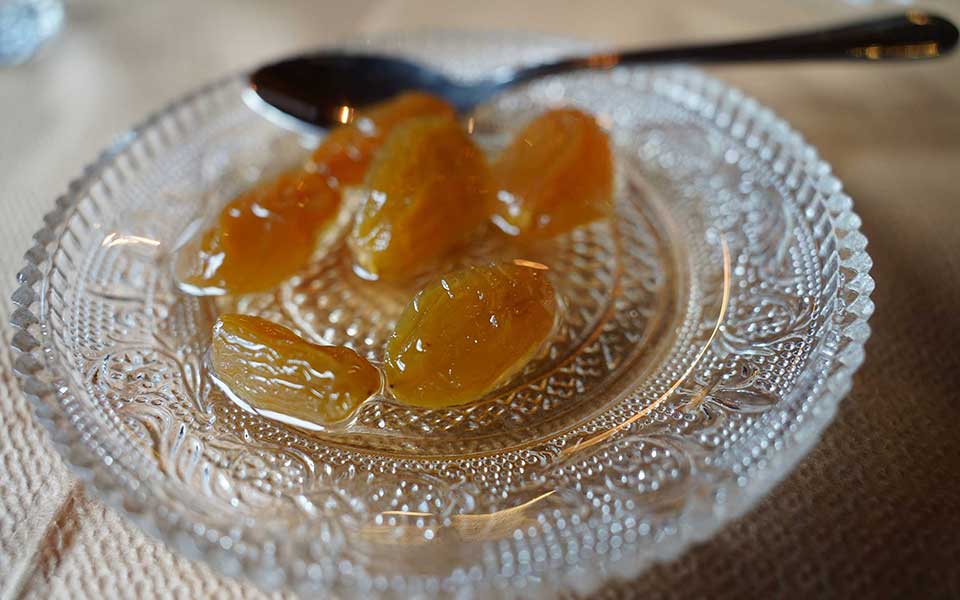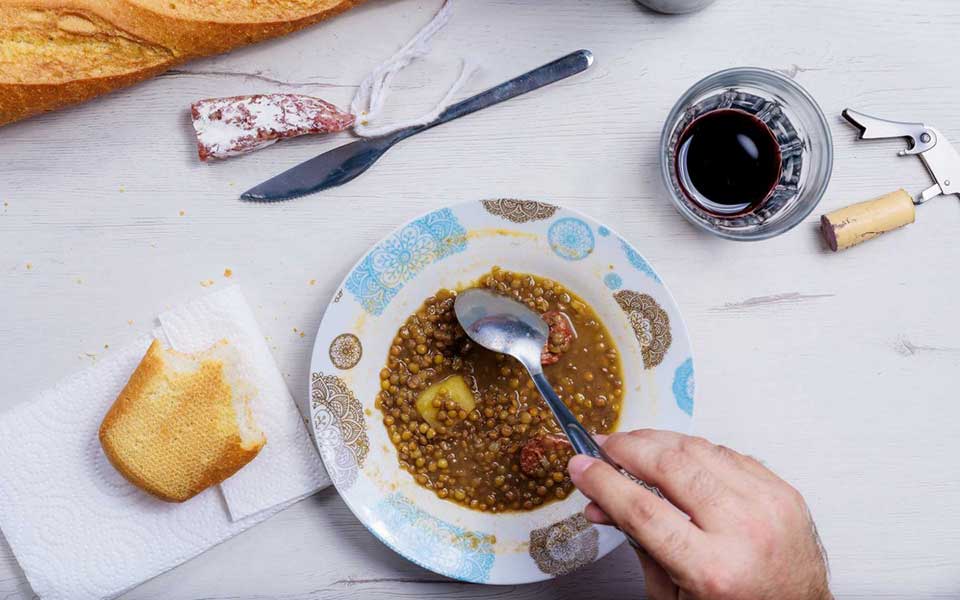Our sense of taste and smell can evoke powerful memories. We’ve all experienced moments when the aroma of a freshly-prepared meal has triggered heart-warming memories of the kind of food yiayia (grandmother) used to make. The taste of certain foods may recall memories of meals enjoyed on past vacations, at specific places, or on special family occasions. By adding a few Greek ingredients to our diet during the fall and winter months, we can introduce a wide variety of mouth-watering flavors and aromas to our meals and boost their nutritional value. This can be an extra incentive to experiment with new recipes, or to simply add a new dimension to old ones.
Here, we’ve selected 12 essential Greek staples that will add that extra sense of adventure and joy to your winter pantry!

© Shutterstock
Tomato paste (tomatopoltos) is used in Greek cooking as a base for soups, ladera (oil-based) dishes, pasta sauces, and more. It can even be used as a simple marinade. There are various kinds of this concentrate, which is high in antioxidant-rich lycopene and shown to help the body prevent cancer. Still, we especially like the “peltes” from Milos island, made with sun-dried tomatoes. It’s so delicious it can even be eaten on its own as a spread.
Extra Virgin Olive Oil from around the country makes everything tastier, from raw to cooked foods (check out our buying guide). The oil retains its maximum health benefits when uncooked or only slightly heated.
Pork sausages preserved in pig’s fat, as traditionally produced on Andros island, have an intense flavor and will easily last you throughout the winter. Use them to make a traditional Fourtalia omelet recipe or add extra flavor to warming stews and soups like fasolada (bean soup) by chopping and sautéing a few slices with onion, garlic, and other veggies and spices.
Afrina sea salt, or “fleur de sel,” has become a gourmet staple in recent years and can add a delicate and tantalizing touch to savory and sweet creations. It’s usually sprinkled on at the end, just before serving, so its consistency and subtle yet effervescent taste can do their thing.

© Shutterstock
Dried herbs and spices like oregano, thyme, boukovo chili flakes, dill, and mint can really change the profile of a dish, but their freshness and quality are vital. Each with its own health-giving properties and distinctive flavor, they will either enrich a dish or star in it, and most can double as tea as well. High in antibacterial, anti-fungal, and antiviral compounds, oregano and thyme are particularly beneficial to the respiratory system, while mint aids digestion.
Desiccated mushrooms foraged from Greece’s mushroom-growing regions are the perfect addition to risotto, pasta sauces, and soup. High in protein and antioxidants, mushrooms have been the focus of much scientific attention in recent years, having been shown to have many health benefits for brain, heart, and bone health, to name a few advantages.
Greek pasta is the ultimate comfort food, especially handmade by a women’s cooperative on an island or alpine village. A rooster dish made with hilopites or a tomato sauce kritharaki (orzo pasta), served with creamy cheese and boukovo, are just some of the dishes that can bring a warming smile to cold winter days.
Trachanas, made with soured milk and wheat, is another ingredient with which you can make feel-good soups and stews (like this suggestion). Low-fat and healthy, it also requires minimal fuss to prepare.

© Shutterstock
Spoon sweets are made throughout Greece from all kinds of fruits and nuts, from quinces and whole walnuts to oranges, watermelon, and pears. The good news is that they’re not hard to make at home, adding just the right amount of sweetness to your day. Enjoy with a Greek coffee or homemade lemonade.
Pulses are an excellent source of sustenance and satisfaction. High in protein, fiber, vitamins, and minerals, they are also very variable and can be enjoyed in hearty stews, warming soups, and delicious salads.

© Shutterstock
Paximadia, bread rusks made with barley, carob, rye, and/or other ingredients, are a perfect addition to soups, salads, and stews (instead of fried croutons. They can also be served as part of the Cretan-inspired dakos salad, topped with chopped tomato and a good serving of creamy goat’s cheese or feta.
Honey, Nature’s sweetener, is renowned for its health properties and for boosting the immune system. It can also add a delicious sweetness to your morning yogurt, hot drink, salad dressings, and more. There are endless choices (we especially like these brands) of different types of honey made by producers across Greece. Aim for organic and pure honey from small producers.
WHERE TO SHOP
There are a multitude of Greek food stores online. These are some of our most highly recommended ones to get you started in your search for the ideal pantry-stocking options in the lead-up to winter!












